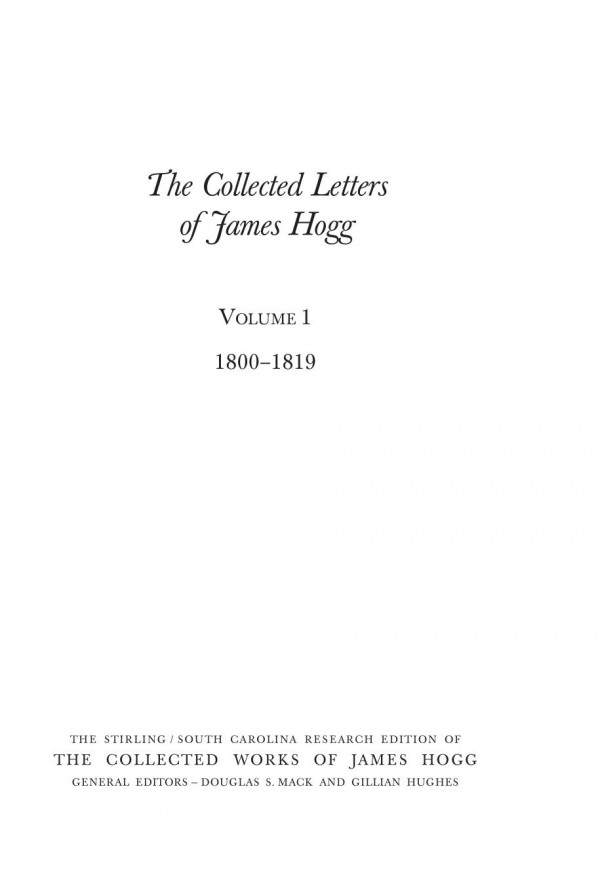

Most ebook files are in PDF format, so you can easily read them using various software such as Foxit Reader or directly on the Google Chrome browser.
Some ebook files are released by publishers in other formats such as .awz, .mobi, .epub, .fb2, etc. You may need to install specific software to read these formats on mobile/PC, such as Calibre.
Please read the tutorial at this link: https://ebookbell.com/faq
We offer FREE conversion to the popular formats you request; however, this may take some time. Therefore, right after payment, please email us, and we will try to provide the service as quickly as possible.
For some exceptional file formats or broken links (if any), please refrain from opening any disputes. Instead, email us first, and we will try to assist within a maximum of 6 hours.
EbookBell Team

4.3
38 reviewsHogg was a superb letter-writer, and this is the initial volume of the first collected edition of his letters (to be completed in three volumes). Many of the letters have never been published before, or published only in part. They vividly reflect Hogg's varied social experience and shed new light on his own writings and those of his contemporaries. Among his famous correspondents were writers such as Scott, Byron, and Southey, antiquarians such as Robert Surtees, politicians such as Sir Robert Peel, and editors and publishers such as John Murray, William Blackwood, and Robert Chambers. But there are also letters to shepherds, farmers, aristocrats, musicians, young ladies, and bluestockings. Hogg first appears in this volume in 1800 as a young shepherd with literary ambitions, and becomes the famous author of The Queen's Wake (1813) and a key supporter of the early Blackwood's Edinburgh Magazine (1817). Among the final letters it contains are some tender if idiosyncratic love-letters to the Dumfriesshire girl he married in 1820 at the mature age of forty-nine. Hogg's entertaining and informative letters are supplemented by detailed annotation and a full editorial apparatus, including biographical notes on his chief correspondents and a concise overview of this phase of his life.
This edition of Hogg's Letters has its roots in the late 1970s and 1980s, when the four founder members of the James Hogg Society (Gillian Hughes, Douglas Mack, Robin MacLachlan, and Elaine Petrie) began work on tracing and transcribing Hogg's surviving letters. The major tasks of completing this work and preparing a full-scale edition of Hogg's Letters were subsequently passed to Gillian Hughes, who is now bringing this important research project to fruition.
Key Features